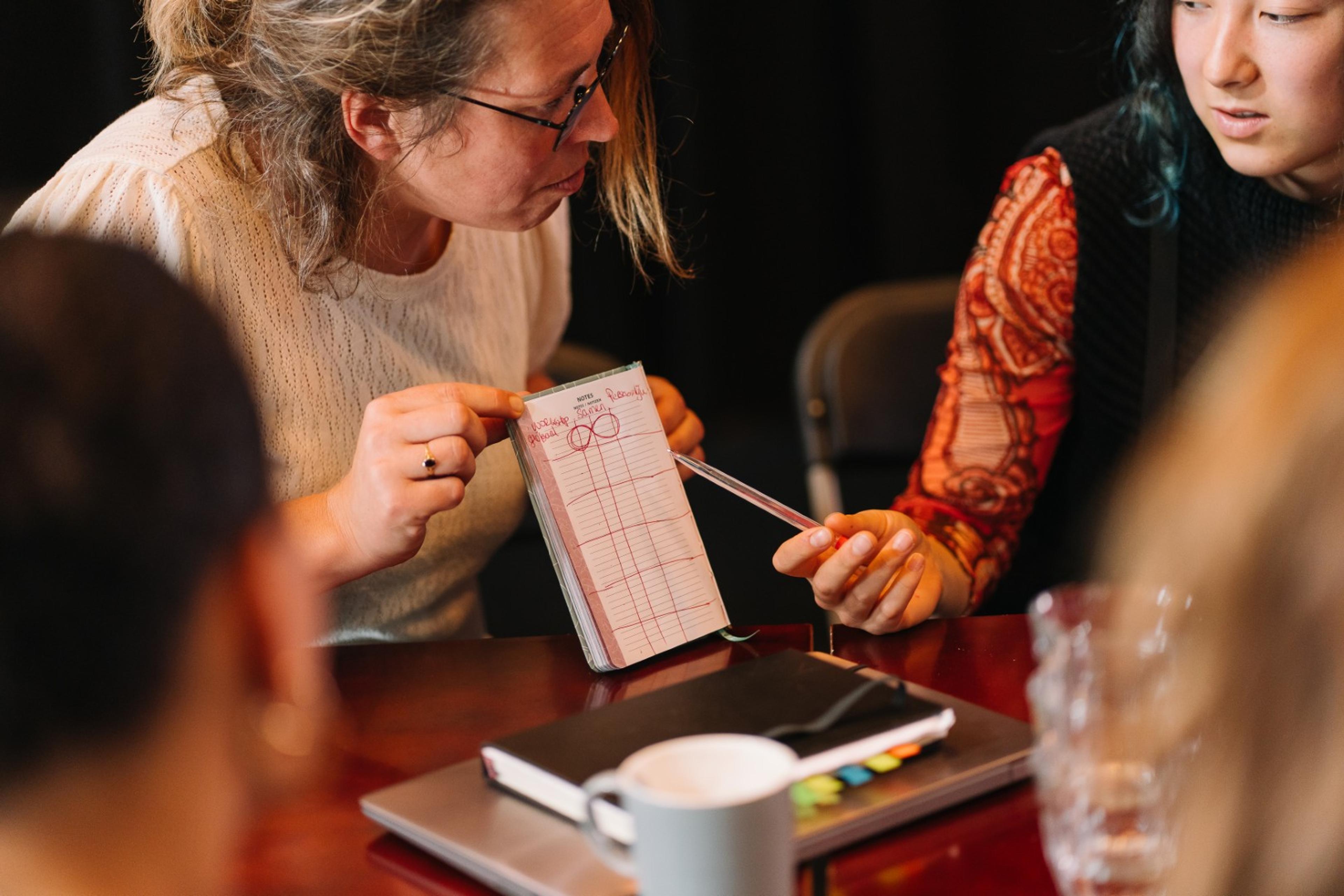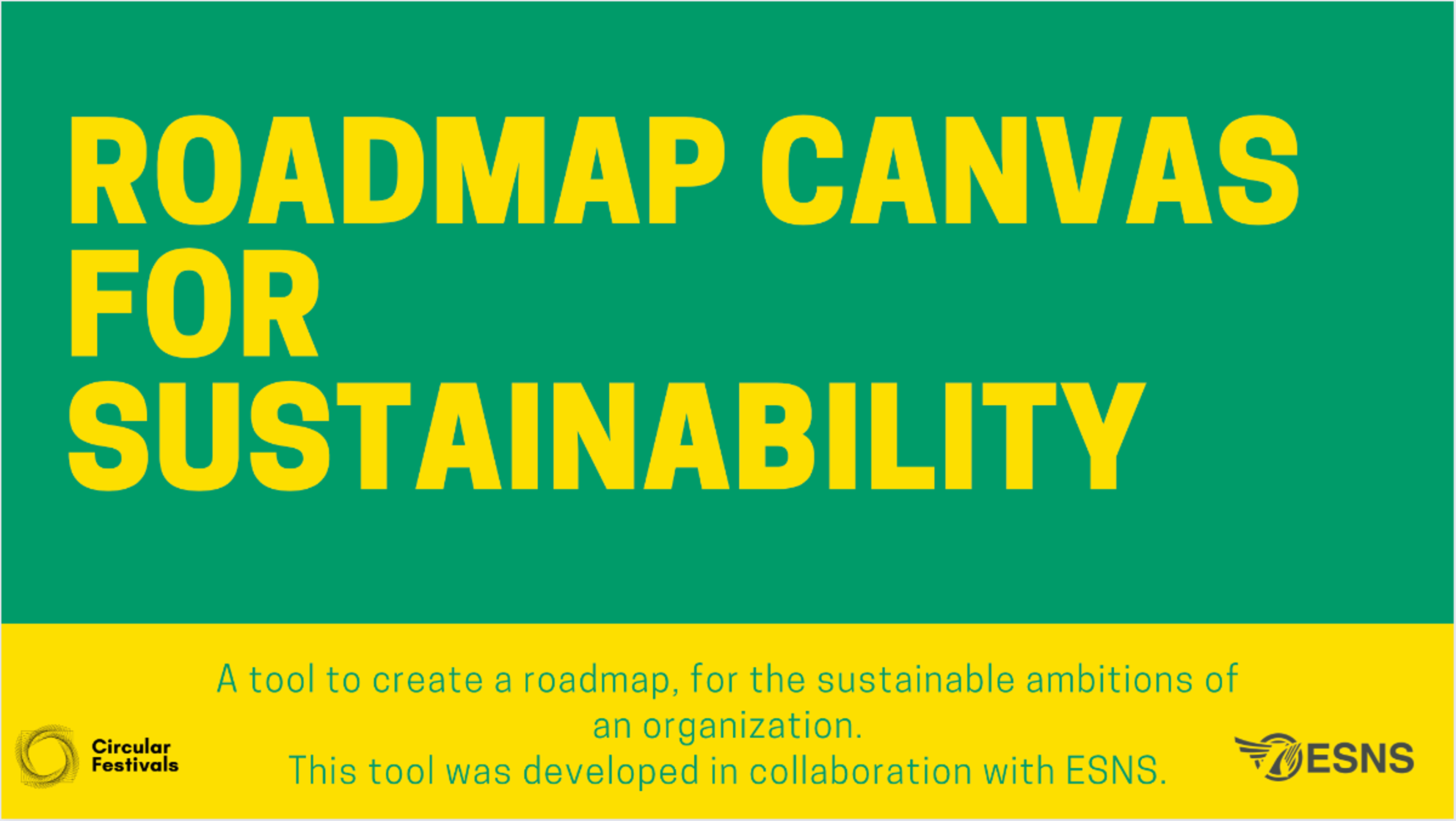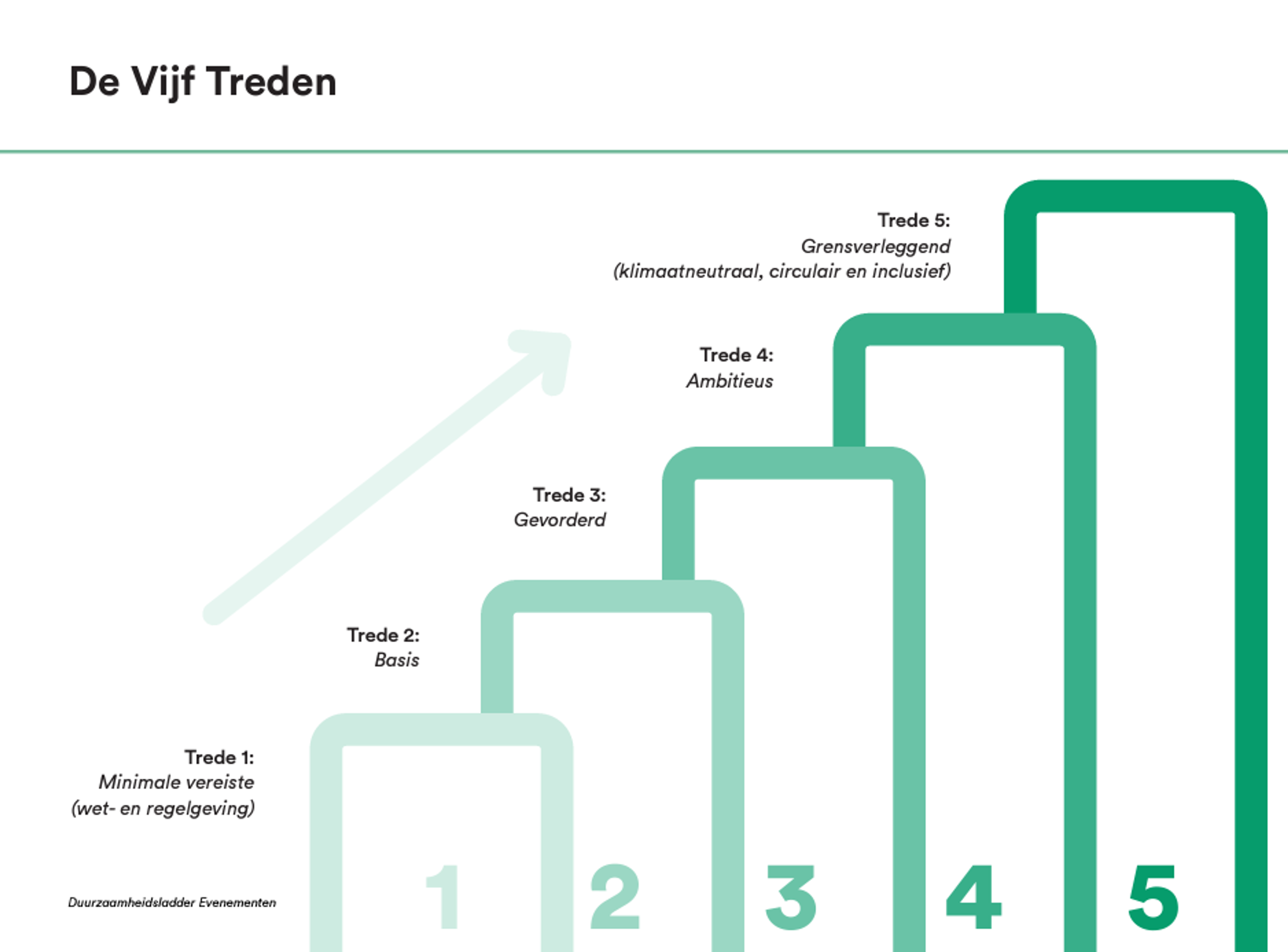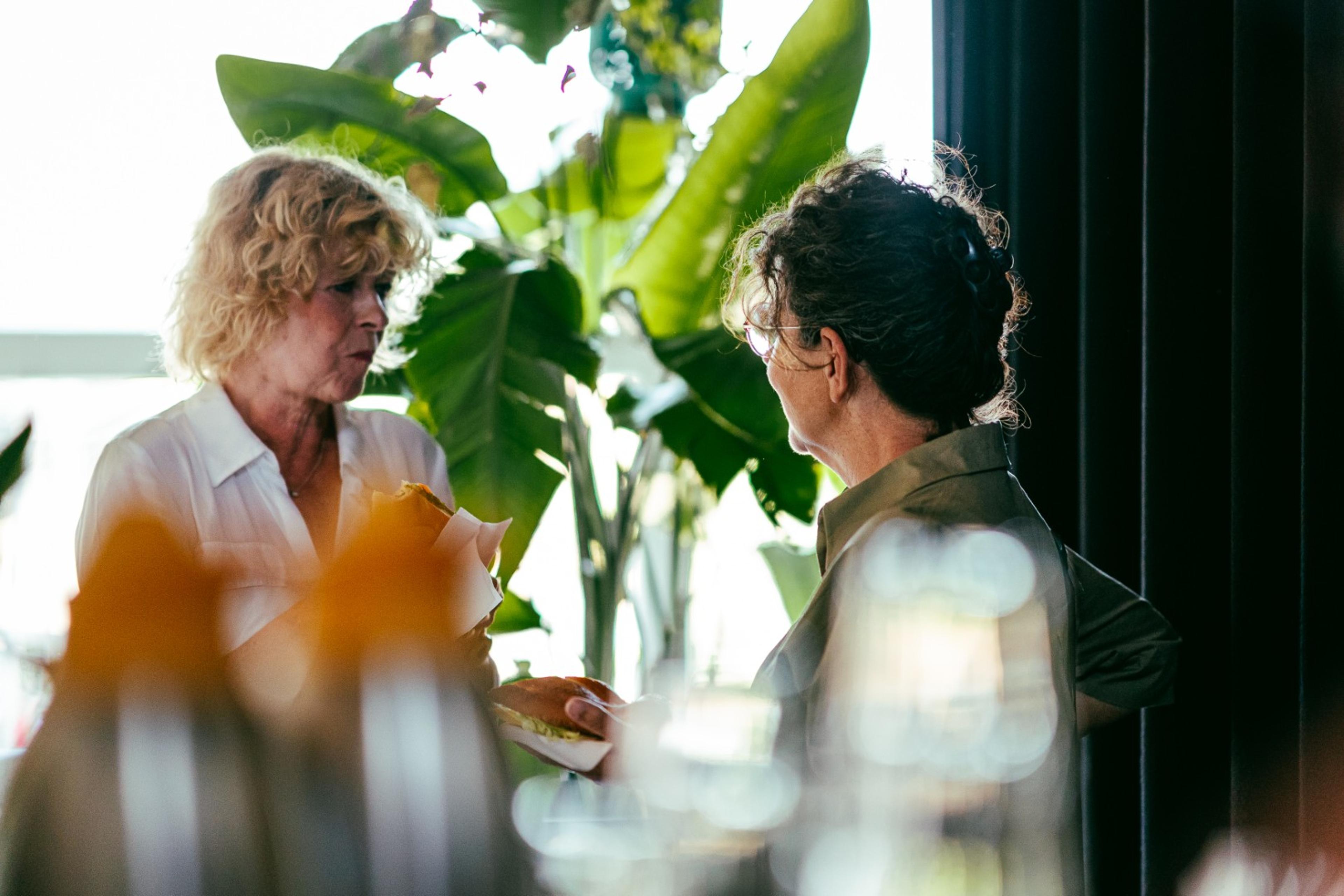
Develop strategy on sustainability
The world faces major challenges regarding climate change and sustainability. In the cultural sector, too, there is a growing urgency to contribute to a more sustainable future. Not only to comply with laws and regulations, but also to remain relevant to an increasingly aware public and future generations. But how do you tackle this concretely?
In this article, we will discuss developing a strategy on sustainability, the resources available to do so and where to find support to actually implement your plans.
Why sustainable?
Research reports by Green Events and others show that (cultural) events cause a lot of environmental damage, such as large amounts of waste, CO₂ emissions from transport and fossil energy, and disruption of ecosystems. Cultural organizations can not only contribute to climate goals through sustainability, but also improve their processes and save costs. Sustainability is essential to reduce environmental damage and future-proof the cultural sector within broader ambitions for a fair and sustainable world.
Climate Goals
The Paris Climate Agreement, signed by nearly 200 countries in 2015, aims to keep global warming well below 2 degrees. This agreement forms the basis for national measures, including the Dutch Climate Agreement. In it, government, businesses and civil society organizations work together to reduce greenhouse gas emissions. The goal is to emit at least 49% less in 2030 than in 1990 and to be climate neutral in 2050. In addition, the Netherlands aims to have a fully circular economy by 2050, in which raw materials are efficiently reused and waste is minimized.
There are also the United Nations' 17 Sustainable Development Goals (SDGs). These goals address global challenges such as poverty, climate change, inequality and conservation. Both frameworks provide guidelines and inspiration to help organizations become more sustainable and contribute to a better future. In addition to these broad guidelines, there are numerous smaller climate goals and ambitions, such as renewable energy, reduced food waste and increased biodiversity. Together, all of these initiatives contribute to achieving the larger climate ambitions.
Tip: In addition to guidelines, the Climate Accord offers subsidies and support for organizations, companies and individuals who want to contribute to these goals. More information can be found at klimaatakkoord.nl.
Mission and vision
A sustainable organization begins with a clear vision and mission. This helps set a direction and build support among your team and collaboration partners.

Roadmap Canvas for Sustainability
A useful tool for this is the Roadmap Canvas for Sustainability, developed by Green Deal Circular Festivals in collaboration with showcase festival Eurosonic Noorderslag. This roadmap helps organizations chart a clear path, with short-term goals and a focus on achieving long-term sustainability. The approach includes three key steps:
- Status quo: Analyze the current situation, previous efforts, opportunities and stakeholders involved to create a foundation and shared vision.
- Sustainable ambitions: Choose focus themes, set measurable goals and create an action plan for the greatest impact.
- Build your roadmap: Develop a multi-year plan with concrete goals, a clear story and a targeted audience.

The Sustainability Ladder
The Sustainability Ladder Events (DLE), developed by Green Events Netherlands and several partners, provides a practical method for making events more sustainable and inclusive. It helps organizations understand their current position and step-by-step achieve more sustainable ambitions through five steps, from minimum legal requirements to fully circular and inclusive working. A clear roadmap for organizations to integrate sustainability within different themes:
- Ecological: energy, transportation and travel, materials, flora and fauna, water and sanitation, and food and drink.
- Social: safety and health, diversity, equity and inclusion, and accessibility.
- Governance: mindset and organizational culture, strategy and organization, measurement and reporting, and marketing and communications.

The model provides uniform guidelines and a step-by-step approach to sustainability. Each step builds on the previous one, with concrete actions and legislation, allowing organizations to make targeted choices and communicate a clear vision to the public, collaboration partners and grantmakers.
Sidenote: Every organization is different. What works for a large museum may not always fit a small theater or festival. Tune sustainable solutions to your situation.
Theatre Green Book
The Theatre Green Book is a comprehensive three-volume guide to making theater productions and buildings more sustainable. Developed by British theater makers and sustainability experts, it provides a practical framework for climate neutral production and supports theaters worldwide in their sustainable transition. Download the Dutch-language version here.
Support and grants
Support for sustainability is growing strongly in politics. More and more rules that used to be optional are now becoming mandatory. This can be challenging, but also offers opportunities for cultural organizations to set an example. Moreover, a lot of help is available. For example, various governments offer subsidies and schemes.
Tip: View a comprehensive overview of available cultural grants and application deadlines through June 2025 here.

Enlisting help
Je kunt ook hulp inschakelen van specialisten in de culturele sector, zoals duurzaamheidsadviseurs of platforms zoals Actiealscultuur.nl. Voor kleinere organisaties kan samenwerking met lokale duurzaamheidsinitiatieven, zoals energiecoöperaties of kringloopwinkels, een goede start zijn.
Tip: Ben je festivalorganisator? De Green Deal Circular Festivals (GDCF) is een samenwerking tussen de Nederlandse overheid en Europese koplopers die je ondersteunt bij de overstap naar circulaire en klimaatneutrale festivals met praktische tools, kennisdeling en een groeiend netwerk van 49 festivalorganisaties.
Sources:
- Green Events Netherlands
- Wikipedia: Paris Agreement
- Netherlands Circular in 2050
- SDG Netherlands: The 17 Sustainable Development Goals
- Climate Agreement Netherlands
- Cultuur Academy: Grant deadlines through June 2025
- Roadmap Canvas for Sustainability
- Circular Festivals
- Sustainability Ladder Events (Green Events).
- Theatre Green Book
- Theatre Green Book (Dutch version)
- Action as Culture
- Sustainable Event Management Course (Green Events)